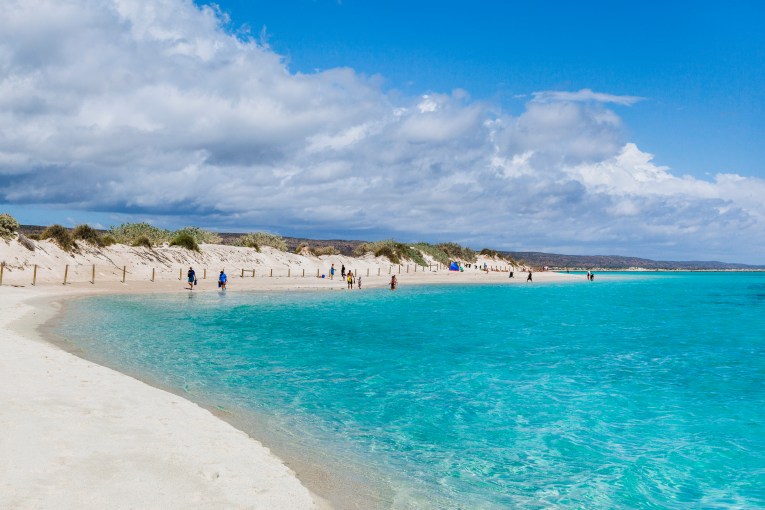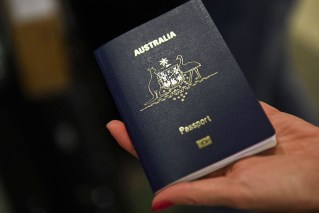What kind of travel insurance is right for you?


The age-old saying if you can afford to travel, you can afford insurance, rings true. Photo: Getty
“If you can’t afford insurance, you can’t afford to travel.”
That’s the mantra according to SmartTraveller.com.au, the Department of Foreign Affairs and Trade’s consumer website. But it also pays to know what kind of policy best suits your specific needs – what’s covered and what’s not.
Here are some key things to look out for when shopping around for travel insurance, and a few tips in case things go terribly wrong during your next holiday overseas.
Medical cover
The average cost of a night in a hospital bed in the US is $5500 a day. In Bali, a night in the emergency ward of a private hospital can set you back up as much as $25,000. So if an insurance policy doesn’t offer unlimited coverage for hospital cover and medical evacuation then shop somewhere else. If you do get sick or have an accident while travelling and wish to make a claim against your policy, you’ll need a doctor’s certificate and receipts for any treatment and medicine you’ve received. And don’t wait until you get back home to notify your insurer; you’re required to notify them via telephone or email within 24 hours. In the event you’re incapacitated, a third party can do it for you.
Devil in the detail: most policies don’t cover the cost of ongoing treatment after you get back home.
Sports travel
Gone are the days when travellers’ bucket-lists revolved around lounging around oasis-shaped swimming pools in corny resorts that put miniature umbrellas in their cocktails. Today people dream of niche, adventure and adrenaline travel: stuff like surfing in the Maldives, mountain biking in Nepal or cruising to Antartica. But did you know that many of these activities require additional levels of insurance coverage? Even the seemingly benign sport of golf often requires additional coverage. “Golf is a sport of repetition as the same sort of swing is used on most shots,” according to Sports Cover Direct. “So it’s no surprise that back pain is the most common problem followed closely by shoulder, knee and arm injuries. There’s also the possibility of being hit by a stray ball.”
Devil in the detail: Say you slam into a tree while skiing in the French Alps and end up in a French hospital with a broken leg. Your insurance will cover you no matter what, right? Not if they learn there were recreational drugs or excess alcohol in your bloodstream.
Scooters
Few people would be stupid enough to ride a scooter in Australia without a motorcycle licence, helmet and a solid pair of shoes. Yet the number of Australians who do so in destinations like Thailand and Vietnam is staggering. The gambit is even more ridiculous when one considers the fact that road quality and driver education in the developing countries are often substandard. And just about every travel insurer stipulates your policy will be void if you have an accident while piloting a motorcycle with an engine larger than 150cc. InsureandGo is the only Australian company I’m aware of that covers riders of motorcycles with larger engines.
Devil in the detail: You’ll need an international driver’s licence to make a successful claim in the event of a vehicle accident – irrespective of whether the country you’re travelling in requires you to have one. They’re available for about $40 from your state or territory motoring club.

Scooters are a cheap and common way to get around in Asia – but they’re also fraught with danger. Photo: Getty
Baggage and personal items
Many insurers today offer different levels of protection for personal belongings (basic, medium or premium), while some also charge premiums for big-ticket electronic devices like laptops and smartphones – in addition to capped limits on how much they’ll pay for each item in the event it gets stolen, broken or lost. And unless your policy specifies ‘new for old’, payouts will be adjusted negatively for depreciation. I once made a claim for a $1000 laptop after the screen cracked during a bus trip in India. The laptop was in perfect working order but after three years of depreciation were deducted from its value, the payout came to less than $400.
Devil in the detail: Most policies do not cover sunglasses unless they’re prescription sunglasses.
Making a claim
If your belongings are lost or stolen, you’ll need to get a police report to make a successful claim. In developing countries, this process can take days. The key is persistence. Let the local constabulary know it’s going to be easier for them to give you a report rather than to brush you off, or enlist the help of a local to help you navigate the thorny cross-cultural landscape. And whatever you do, never, ever lose your patience or cool if they give you the runaround. It won’t help your case and could also land you in hot water. If the police ask you to pay a ‘cash fee’ or make a ‘donation’ to obtain a report, contact your insurer for further advice first.
Devil in the detail: Baggage that’s lost, stolen or broken in airports, airport car parks or mid-flight is generally not covered by travel insurance policies.
Crowfunding – The last resort
The use of crowdfunding websites like GoFundMe to help cover the hospital bills or medevacs of desperate travellers caught overseas without a metaphorical leg to stand on is a growing – and disturbing – trend. Basically, what these people are saying is, “I was too cheap to spend a couple of hundred bucks on travel insurance and now I’m begging you to help save my butt, leg or life”. The families of some travellers who died overseas without travel insurance or adequate travel insurance are also using crowdfunding to repatriate the bodies of their loved ones – most famously last year when the insurance company of Daniel Hegarty, a British rider who fatally crashed at the Macau Motorcycle Grand Prix, refused to pay up because he died outside Europe. Hegarty’s brother raised $56,000 through crowdfunding site JustGiving but then offered donors refunds when the insurer had a change of heart – probably because of the victim’s high profile.
Devil in the detail: GoFundMe is no knight in shining armour. The website takes 5 per cent of donations while payment processors take another 2.9 per cent plus 40 cents per donation.

Just because you’re on holidays doesn’t mean you’re invincible. Photo: Getty
The long and the short of it
These pointers are in no way exhaustive. There are countless other things to consider when shopping for a travel policy: excess waivers, loss of income, legal expenses, hijacking, war natural disasters, etc. But the last things you want to do is base your decision on price alone, because at the end of the day the expense will be nothing, and I mean nothing, compared to the astronomical costs of emergency medical treatment abroad.








